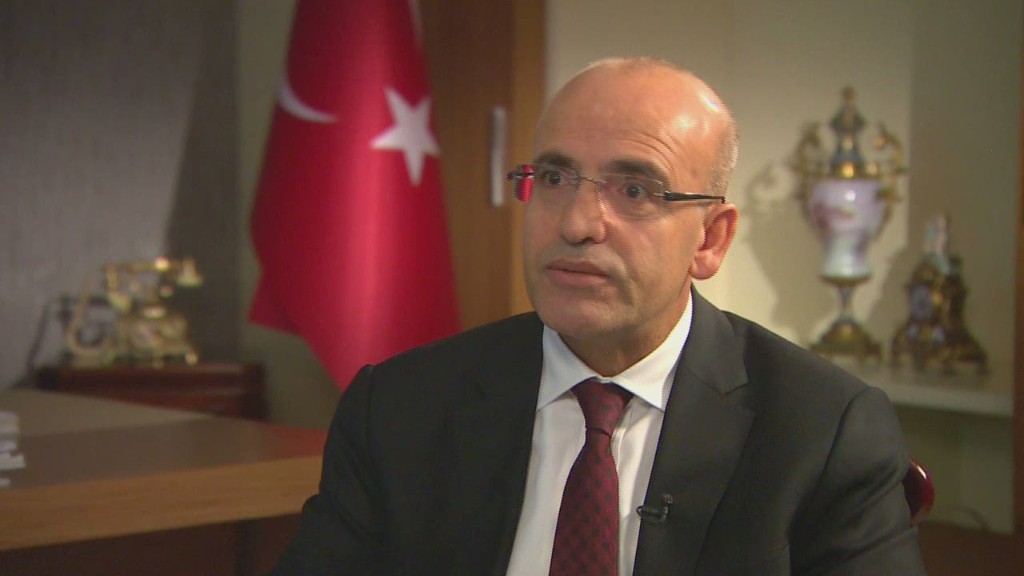
The Turkish lira hit a record low on Monday after Turkey's ruling party failed to win an overall majority in the country's parliamentary elections.
The lira fell to 2.81 against the U.S. dollar, about 5% weaker than Friday's close of 2.66. For much of last month, the lira had been hovering around 2.6, and has tumbled by about 20% against the dollar so far this year, making it one of the worst performing emerging market currencies. Stocks in Istanbul dropped nearly 6% in morning trading.
On Sunday, President Recep Tayyip Erdogan's Justice and Development Party (AKP) won about 41% of the vote, or 259 of the 550 seats up for grabs. The election marks a major shift in power -- for the first time since coming to power in 2002, the AKP Party no longer holds an outright majority, and will now likely need to form a coalition with other parties.
Erdogan continues to face an uphill battle with Turkey's economy, which is now posting dramatically slower growth compared to just a handful of years ago.
First quarter growth figures are due out Wednesday, and economists are expecting around 2% growth compared to last year, down from 2.6% gross domestic product growth in the last quarter of 2014. That's a far cry from the 9% increase Turkey posted in 2010.
Related: Biggest loser from the strong dollar: Emerging markets
Turkey is also fighting rising inflation -- last month, the central bank "hinted that it's more concerned about the inflation outlook than before," according to Capital Economics.
And more than 20% of its government debt is denominated in a foreign currency, according to Moody's -- that's a lot of foreign debt to pay off as the value of its own lira sinks.
Investors have sent Turkish stocks down by over 10% so far this year over growth and political concerns.
Experts say that going forward, Turkey will need painful, longer-term economic reforms, rather than temporary solutions, to shore up its economy.


